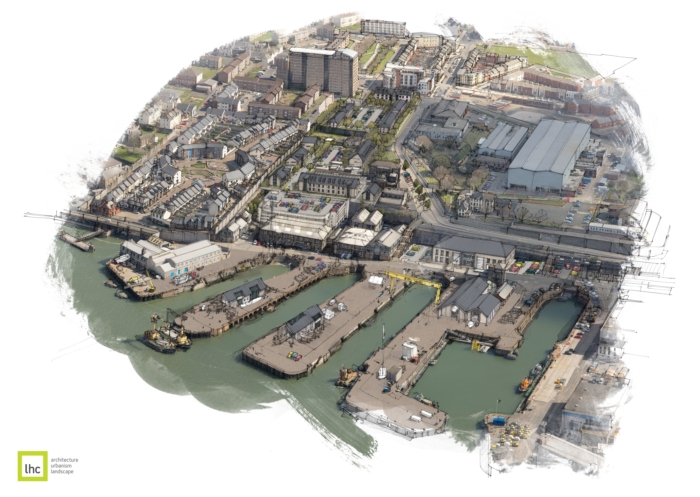Alder King Planning Consultants have recently secured planning permission and a related Listed Building Consent for the mixed use employment development of 7.46 hectares of land at South Yard in Devonport Naval Base in Plymouth. The development is one of the most ambitious regeneration projects in the South West and aims to reaffirm Plymouth’s reputation as a global centre of marine expertise.
Working as part of a high profile team led by AECOM, Alder King co-ordinated the submission of the applications to Plymouth City Council on behalf of the Plymouth City Deal Team, securing consent within just four months.
The granting of planning permission is a significant component of a land deal between the Ministry of Defence and Plymouth City Council to transfer part of South Yard to the Council for employment-led urban regeneration.
The site, which sits within the new Enterprise Zone, is split into two distinct levels and includes significant heritage assets including Listed docks and former Naval buildings.
The development will leverage new investment and create up to 1,100 new jobs and 349,000 sq ft of high tech and manufacturing employment space. This will include a Marine Industries Production Campus.
In addition to the main development, the planning application also considered significant issues including preserving the security of residual MOD dock uses, air quality, ecology, pollution, contamination, sustainability and traffic.
The AECOM team, which includes LHC Architects and Alder King’s development consultancy colleagues, worked closely with English Heritage, the Environment Agency and key Plymouth City consultees.
Dale Evans, planning partner at Alder King, said: “We are very pleased to have been part of the AECOM team on this project and to have secured the permissions in the timeframe essential to facilitate the land deal and the bringing forward of the first phase of development on the eastern part of the site.
“Securing the permission required real engagement at a pre-application stage and the completion of an initial and addendum Environmental Statement. This would not have been possible without a collaborative and pragmatic approach from the applicant team, City Council officers and key consultees such as English Heritage.
“With a sound Outline permission in place, we are very hopeful that the first phase of development can proceed quickly, facilitating the direct delivery of jobs into the area and wider environmental and socio-economic benefits.”






















